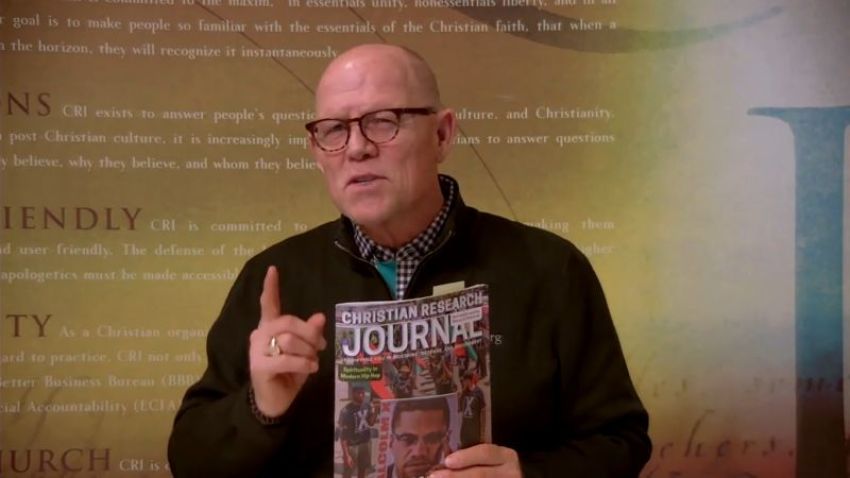Hank Hanegraaff says ‘modern prophecy pundits’ wrong to tie Ezekiel 38 to war in Ukraine

Hank Hanegraaff, also known as the “Bible Answer Man,” says “modern prophecy pundits” are wrong to call Russia’s invasion of Ukraine fulfillment of a prophecy in the book of Ezekiel after Pat Robertson and others said Ezekiel prophesied about the event more than 2,500 years ago.
Tying Ezekiel 38 to Ukraine’s invasion is based more on “our modern-day imaginations” than being rooted in the historical context, argues Hanegraaff, an Orthodox Christian author in “Hank Unplugged Short” on YouTube.
Ezekiel is about the “prince of Rosh” coming with other nations to attack the “land of Israel,” leading to God’s judgment. Verse 2 reads, “Son of man, set your face against Gog, of the land of Magog, the chief prince of Meshek and Tubal; prophesy against him.”
Many Bible scholars believe that the mention of Magog attacking Israel in Ezekiel 38 is modern-day Russia.
Televangelist Pat Robertson recently said Russian President Vladimir Putin is being “compelled by God” to invade Ukraine. “He went into the Ukraine, but that wasn’t his goal. His goal was to move against Israel, ultimately,” Robertson said, suggesting that this was all prophesied by Ezekiel, who lived more than 2,500 years ago.
However, Hanegraaff says understanding the historical context is crucial to properly evaluate biblical text.
Explaining the context, he says: “Remember this, Ezekiel was prophesying during an extremely dark period in the history of Judah. He was born into the priesthood in Jerusalem, right about the time that Josiah found the book of the law in the temple. This was a time in which spiritual renewal had broken out in the land. But unfortunately, the reformation was short-lived. By the time of Josiah’s death, the idolatrous practices of the past had returned with a vengeance, and thus the acts of God’s judgment fell. As a result of the acts of God’s judgment falling, Ezekiel found himself on the dusty plains of Babylon.”
Hanegraaff adds that Ezekiel was “warning fellow exiles that the worst lay right around the corner.”
Referring to the desecration of Jerusalem and its golden temple in 586, he continues, “Ezekiel was prophesying from the dusty environs of a refugee camp in the south of Babylon, near the Kebar River. And there he looked into the eastern sky, and he was longing for the glory of the Lord to return to a temple that had vanished in the rocks that surrounded it. He yearned for the promise of a temple whose glory would exceed even that of Solomon’s temple.
“And in the Spirit, he was looking forward to events that were going to take place a generation later — a generation later — not the 21st century, but a generation later. A generation later — when Zerubbabel would rebuild the spiritual condition of the returning exiles [and] when Nehemiah would challenge his fellow countrymen to arise and rebuild the shattered walls of Jerusalem.”
And “Rosh” does not mean “Russia,” Hanegraaff says.
The Christian apologist website Got Questions also talks about Russia in biblical prophecy.
“Gog is a person. Whoever Gog is, he is from the land of Magog and is the leader of Tubal and Meshek (some translations add ‘Rosh’ to the list) and a confederacy of other nations: Persia, Cush, Put, Gomer, and Beth Togarmah (Ezekiel 38:5–6). And, whoever he is, he will have plans to ‘attack a peaceful and unsuspecting people,’ viz., Israel (verses 11, 14, and 18). But, regardless of Gog’s plans, the Lord God is against him and will defeat him soundly (Ezekiel 38:4, 19–23; 39:3–5).”
“Persia,” a nation listed as being in alliance with Magog, is modern-day Iran.
Hanegraaff argues, “The word ‘Russia’ is an 11th century Viking word and not semantically linked, in the least, to the Hebrew word Rosh. We need to understand the principles of biblical interpretation so that our modern-day imaginations don’t go wild.”



























